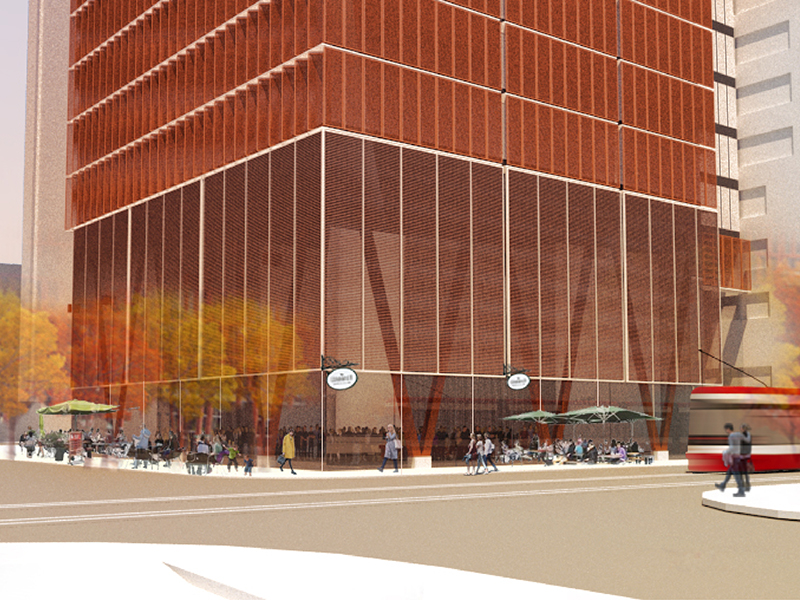Think of it as speed dating meets Ted Talks: the Kehilla Residential Programme, a Toronto-based non-profit, is using a presentation style called PechaKucha, in which presenters show a series of 20 slides for 20 seconds each, to raise awareness of, and find solutions to, the city’s housing affordability problem.
Yes, this is a Jewish community event, but no, PechaKucha is not Hebrew, Yiddish or even Aramaic. It is Japanese for “chit-chat,” and has become a popular way to deliver fast, concise presentations.
Kehilla’s event, called “Tall Timber: What’s the Word on Wood,” will bring together experts to discuss a new way of building with wood that is strong enough to replace steel and concrete in the construction of large buildings.
“As socially conscious millennials, we’re deeply affected by housing affordability issues in the city and interested in exploring new building innovations that can potentially bring the cost of construction down,” said Kehilla board member and event co-chair Lirad Kligman.
“Timber frame tall building technology is currently in its infancy, so it will be exciting to bring top experts with real world timber experience together into a room, to explore its future. Timber is also a natural symbolic fit to Sukkot and the temporary wooden sukkahs that remind us of Jewish wandering, homelessness and the importance of housing.”
Naama Blonder, who’s also an event co-chair and board member, as well as an architect at Smart Density, explains that, “Tall Timber is renewable, with the future potential of replacing the need for very energy-intensive and non-renewable concrete and steel. Another huge benefit is its impact on reducing noxious emissions, as carbon gets stored in the wood when it grows. And it is a grown-in-Canada product. We have lots of forests.
READ: JEWISH NON-PROFIT HOSTS AFFORDABLE HOUSING PANEL
“Potentially, tall wood construction should become competitive and cheaper than concrete or steel. We’re not there yet, because this technology is in its infancy, but it will happen as the industry matures. Even if the structure is not cheaper than concrete yet, there are other potential savings: the building is much lighter than a concrete building and this can mean big savings on foundations. Also, the erection is faster than concrete, the same way that steel is faster than concrete, which saves a lot of construction time. It’s possible to use tall timber even for buildings of 40-plus storeys.
“At this stage, it won’t be possible to build the entire building of wood. The main structure will have to be non-combustible, but we can still do it with floor slabs, for example, and enjoy many of the benefits of tall timber.”
David Gasch is a real estate investment associate at Marcus Millichap and the third co-chair of the event. He said that, “The event is an excellent reflection of what Kehilla is all about. We are delivering a high-end real estate industry event framed with in a meaningful Jewish context connecting the celebration of Sukkot with Kehilla’s mission of providing shelter. This event leverages Kehilla’s prominent reputation and strong relationships with in the Jewish and broader real estate communities.”
Kehilla’s mission to the most vulnerable members of our community keep roofs over their heads got these young professionals involved with the organization. They are particularly moved by Kehilla’s Rental Assistance Program, which has grown from assisting seven households in 2014, to over 200 today.
Tall Timber continues in Kehilla’s tradition of offering innovating programming that leads to real change. Kehilla ran an international design competition called Sukkahville for six years. In addition to attracting media and public attention, Sukkahville’s main message was using the symbolism of the Sukkah as temporary shelter, to promote the need for more permanent affordable housing.
Tall Timber takes place on Sept. 27 from 5:30-8:30 p.m. at The Kiever Shul in Toronto. Tickets are being sold for $39. An after party will be held following the event at Supermarket Restaurant and Bar in Kensington Market.
